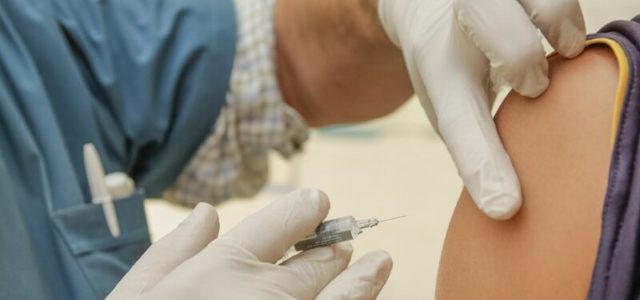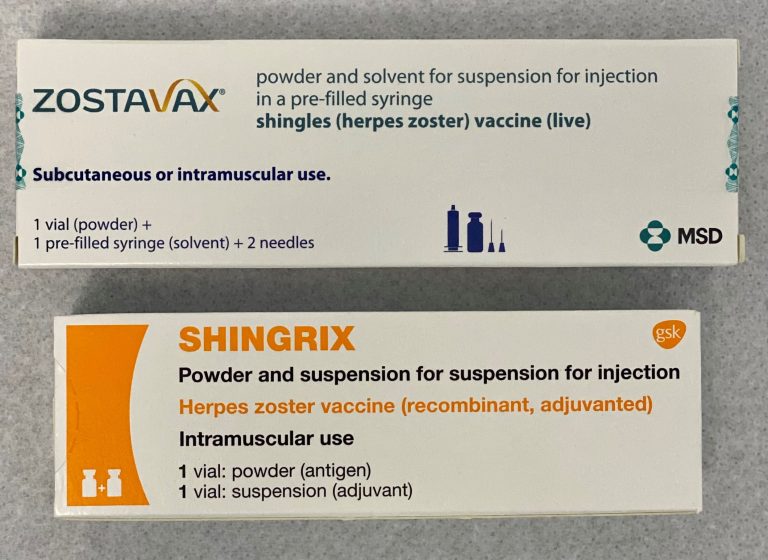GSK plc has announced that the US Food and Drug Administration (FDA) has accepted under priority review an application to extend the indication of its adjuvanted respiratory syncytial virus (RSV) vaccine to adults aged 50-59 who are at increased risk for RSV disease. If approved, GSK’s RSV vaccine would be the first vaccine available to help protect this population. Arexvy is currently approved in the US in adults aged 60 and over for the prevention of lower respiratory tract disease (LRTD) caused by RSV.
· Application supported by positive results of a phase III trial showing immune response and acceptable tolerability profile in this population
· Adults aged 50 and above with underlying medical conditions are at increased risk for RSV disease[1],[2],[3]
· GSK is the first company to file for regulatory approval to extend RSV vaccination to adults aged 50-59 at increased risk
· US FDA has set a Prescription Drug User Fee Act action date of 7th June 2024
The application is supported by positive results from a phase III trial [NCT05590403][4] evaluating the immune response and safety of GSK’s RSV vaccine in adults aged 50-59, including those at increased risk for RSV-LRTD due to underlying medical conditions. GSK used a Priority Review Voucher to reduce the US FDA review period of a supplemental Biologics License Application (sBLA) by four months. The Prescription Drug User Fee Act date, the FDA action date for their regulatory decision is 7 June 2024.
The burden of RSV disease in adults is likely to be underestimated due to lack of awareness, a lack of standardised testing, and under-detection in surveillance studies.[5] People with underlying medical conditions, such as chronic obstructive pulmonary disease (COPD), asthma, chronic heart failure[6] and diabetes,[7] are at increased risk for RSV disease. RSV can exacerbate these conditions and lead to pneumonia, hospitalisation, or death.[8]
[1] Malosh RE et al. Respiratory syncytial virus hospitalization in middle-aged and older adults. J Clin Virol. 2017; Nov:96:37-43. doi: 10.1016/j.jcv.2017.09.001
[2] Prasad N et al. Respiratory Syncytial Virus-Associated Hospitalizations Among Adults With Chronic Medical Conditions. Clin Infect Dis. 2021 Jul 1;73(1):e158-e163. doi: 10.1093/cid/ciaa730.
[3] Begley KM et al. Prevalence and Clinical Outcomes of Respiratory Syncytial Virus vs Influenza in Adults Hospitalized With Acute Respiratory Illness From a Prospective Multicenter Study. Clin Infect Dis. 2023 Jun 8;76(11):1980-1988. doi: 10.1093/cid/ciad031.
[4] ClinicalTrials.gov, A Study on the Immune Response and Safety of a Vaccine Against Respiratory Syncytial Virus Given to Adults 50-59 Years of Age, Including Adults at Increased Risk of Respiratory Syncytial Virus Lower Respiratory Tract Disease, Compared to Older Adults 60 Years of Age and Above 2023. NCT05590403. https://www.clinicaltrials.gov/study/NCT05590403
[5] Savic M, Penders Y, Shi T, Branche A, Pirçon J-Y. Respiratory syncytial virus disease burden in adults aged 60 years and older in high-income countries: a systematic literature review and meta-analysis, Influenza Other Respir Viruses 2022 2023; 17:e13031
[6] Falsey, AR et al. Respiratory syncytial virus infection in elderly and high-risk adults, in New Engl J Med 2005; 352:1749-59
[7] Richard Osei-Yeboah et al, Respiratory syncytial virus-associated hospitalisation in adults with comorbidities in two European countries, PROMISE investigators, preprint, August 2023
[8] Centers for Disease Control and Prevention (CDC), RSV in Older Adults and Adults with Chronic Medical Conditions, 2023









































